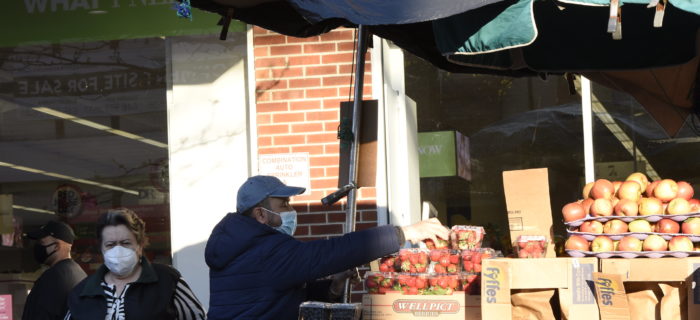COVID, food, and the Parable of the Shmoo
The following is an excerpt from an article at the Journal of the Agriculture, Food, and Human Values Society. To read the full article, click here.
The contradictions between the interests of capitalists and people in general are a fundamental feature of our food and agriculture systems, with workers who are simultaneously called “essential” and “illegal”; hunger alongside dumping and waste; and a US healthcare system world-class in cost but middling in generating health. The outrage of the US’s 40 million unnecessarily food insecure people is now joined by the US’s tragically, preventably large shares of the world’s COVID-19 cases, and deaths (respectively one third, and one quarter).
Sociologist Erik Olin Wright used the “Parable of the Shmoo” to explain why analyzing capitalism and class is vital to understanding contemporary problems like these. The mythical shmoos (originally seen in the comic strip L’il Abner) will endlessly and happily transform themselves into every basic material thing a human being needs, but cannot provide any luxury items (Wright 2000). Unsurprisingly, capitalists connive to destroy the shmoos. Wright explains why: for those whose increased prosperity depends on other people working for them for as little pay as possible, everyone getting their basic needs met for free is a tragedy—people might not work, or (worse yet) demand higher pay! For rational, self-interested capitalists, the best solution would obviously be for only capitalists to get shmoos. Second-best? Destroy them—the former status quo was good for capitalists! If forced to further choose, capitalists might concede that everyone getting shmoos is marginally better than the worst case (only workers getting them).
Things look different from the point of view of the rational, self-interested worker. For them, the first choice IS for everyone to get shmoos: all workers’ basic needs are provided for, but at the same time, the fact that capitalists get them means that they have more resources and thus might (in theory) use them to pay workers more. For workers, the fact that shmoo-owning capitalists might pay workers more is the reason that destroying all the shmoos is actually workers’ last choice.
The Parable of the Shmoo elegantly illustrates why the beloved capitalist saying “a rising tide lifts all boats” says something different than they think: an actual rising tide lifts all boats only because additional water is distributed nearly perfectly evenly.
Click here to read the full article.
Cover image by Informed Images (CC BY-NC 2.0)
Stay in the loop with Food First!
Get our independent analysis, research, and other publications you care about to your inbox for free!
Sign up today!

 Help Food First to continue growing an informed, transformative, and flourishing food movement.
Help Food First to continue growing an informed, transformative, and flourishing food movement.




